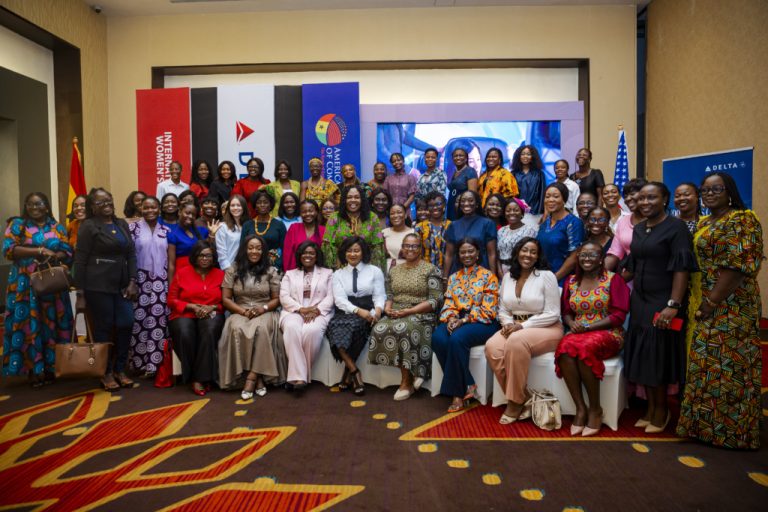Konfidants, in partnership with Standard Chartered Bank Ghana, launched the Ghana Women-Friendly Workplaces Report, an insightful study highlighting workplace policies affecting women’s reproductive health, well-being, and career progression.
The report utilises data from a survey of over 2,000 women across Ghana from the public and private sectors. The report revealed both encouraging and disturbing insights when it comes to workplace support for women’s reproductive health.
On the positive, 92 percent of respondents who have experienced childbirth reported benefiting
from paid maternity leave, which indicates the availability of some workplace support.
However, while 79 percent of women reported experiencing reproductive health issues at work, ranging from dysmenorrhea (excessively painful menstruation), trying to conceive, pregnancy, postpartum transitions, miscarriage, stillbirth, and surrogacy to adoption, the availability of support is inadequate and uneven. For instance, 80 percent of women reported no workplace support for menstrual health.
Paternity leave made a meaningful difference for women whose partners benefited from it. While only 15% of partners accessed it, 72% of women said it was very beneficial to their recovery.
The research found that overall, private sector organizations outperform public sector organizations in terms of workplace support for women’s productive health.
In his remark, Dr. Wilfred Ochan, UNFPA Country Representative for Ghana, congratulated Konfidants for a groundbreaking research.
“I want to congratulate Konfidants for a policy-relevant and groundbreaking research on women’s reproductive health in the workplace in Ghana. UNFPA is happy to join the conversation and see how we take the interventions forward,” Dr. Wilfred Ochan said. “There are male reproductive health issues that also need to be addressed.”
Speaking on why the firm took the initiative to conduct the study, the Managing Partner of Konfidants, Michael Kottoh, stressed the need for evidence-driven intervention.
“Data and research-driven evidence form the foundation for effective intervention and policy design to enhance an inclusive work environment for all, and at Konfidants, we are happy to take the lead with this report. With this partnership with Standard Chartered Bank, we are open to welcoming other strategic partners to expand the scope and maximize the impact of this initial work to enhance workplace inclusiveness for women”, he said.
The report was launched at a stakeholder forum hosted by Standard Chartered Bank Ghana. The forum brought together employees, employers, policymakers, corporate leaders, security services, academics, civil society organizations, and international development organizations to discuss actionable strategies for fostering more inclusive workplaces for women.
Gifty Fordwuo, the Head of Human Resources at the Standard Chartered Bank Ghana, opened the Forum and expressed her anticipation for future partnerships with Konfidants for advocacy on supporting women at the workplace.
“I believe that this report and our partnership with Konfidants Ghana will be the first of many that will help bring balance in the workplace and also create an environment for empowering women’s careers and supporting women to see accelerated progress in their professional journeys,” she said in her opening address remarks.
She used the platform to highlight how Standard Chartered Bank is leading the way in making the workplace more inclusive for women.
The Stakeholder Forum featured a panel discussion moderated by Vivian Kai Lokko and included panelists Nora Bannerman-Abbott (AGI Representative and CEO of Sleek Garments), Shaida Nubi (Founder, Tell-It-Moms), Taaka Awori (Board Chair African Women Development Fund, CEO, Busara Africa), Dr. Miriam Rahinatu Iddrisu (Policy Advisor, Social Sector, Office of the Vice President), Adadzewa Otoo (ISSER) and Naomi Baffour Gyau of Konfidants. The former Director of the Social Development Policy Division of the United Nations Economic Commission for Africa, Emerita Prof Takyiwaa Manuh, provided expert remarks to close the Forum.
THE REPORT FACT SHEET
Key Findings
The report identifies significant gaps in workplace policies that hinder women’s career advancement and well-being. Key insights include:
● Prevalence of Reproductive Health Issues at Work: Seventy-nine percent (79%) of women reported experiencing reproductive health issues at work, with pregnancy and excessively painful menstruation being the most common. Other experiences include lesser-discussed issues such as fibroids, miscarriage, stillbirth, preeclampsia, infertility, and surrogacy, emphasizing the need for more diverse support measures.
● Workplace Support is Available but Inadequate and Uneven: Although 92% of respondents who have experienced childbirth reported benefiting from paid maternity leave, support for other reproductive health needs remains limited. Some organizations have begun to recognize issues like miscarriage, stillbirth, and surrogacy by introducing dedicated provisions. However, 80% of respondents indicated no workplace support for menstrual health. The private sector offers nearly twice as much menstrual health support as the public sector, particularly in flexible and remote work schedules (64.6% vs. 35.4%) and hygiene supplies (72.8% vs. 27.2%). Support for pregnancy-related challenges was also insufficient, as 62% of respondents reported such challenges (including high-risk pregnancies and hyperemesis gravidarum), with 40% struggling to obtain the necessary assistance.
● Discrimination & Career Impact: Eighteen percent (18%) of respondents faced discrimination linked to reproductive health issues, including micro-aggressions, denial of flexible work or leave, poor performance evaluations for necessary time off, pressure to return prematurely, exclusion from key opportunities, and transfers to undesirable roles. Nearly half of the respondents made career-altering decisions—such as reducing work hours, taking unpaid leave, or changing jobs—due to these reproductive health challenges.
About Konfidants
Konfidants is a leading Africa-focused development consulting firm specialized in supporting international organizations, governments, philanthropies, and businesses in driving meaningful impact through: research, monitoring & evaluation, strategy design, impact reporting, capacity building, and stakeholder convenings.










 “The difficulty we have is that these trucks use this road that we built with our tax money, and then instead of putting those materials on rails, they transport it on the road. So part of the reason why our roads do not last as long as they should is because of the nature of transportation we do on them,” he stated.
“The difficulty we have is that these trucks use this road that we built with our tax money, and then instead of putting those materials on rails, they transport it on the road. So part of the reason why our roads do not last as long as they should is because of the nature of transportation we do on them,” he stated. The Project Engineer, Kofi Adjei Frimpong, while briefing the Roads Minister, said JUSTMOH has no problem with construction materials despite delays in payment for work done so far, but pointed out difficulties facing the construction due to inadequate money for compensation.
The Project Engineer, Kofi Adjei Frimpong, while briefing the Roads Minister, said JUSTMOH has no problem with construction materials despite delays in payment for work done so far, but pointed out difficulties facing the construction due to inadequate money for compensation.


















![I will resign from gov’t if… – Kwakye Ofosu [Video] I will resign from gov’t if… – Kwakye Ofosu [Video]](https://www.ghanamma.com/wp-content/uploads/2025/04/61cd8c73910a2d9bd51d917a835204bd.jpeg)














































